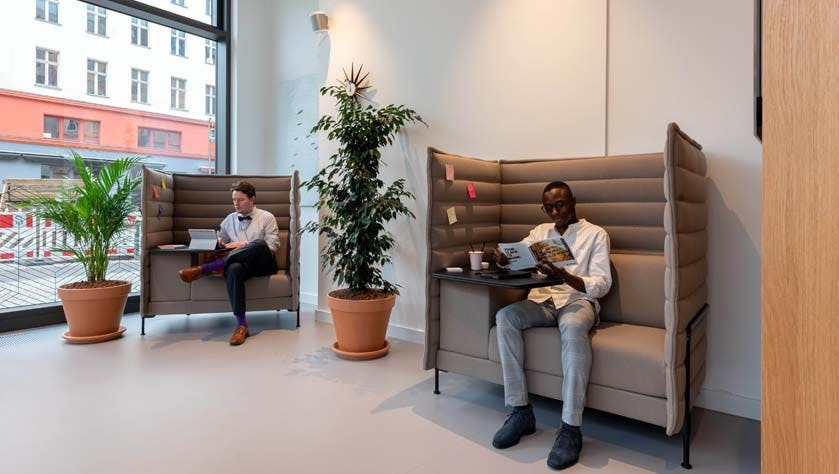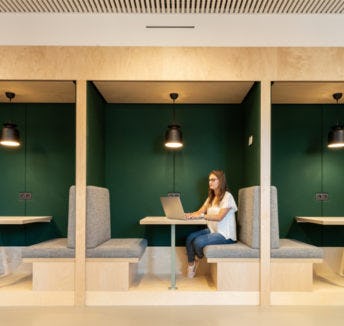
The game is rapidly changing, there was a time when a reserved car-parking space, a corner office of wall-to-wall glass and a well-padded seat on the board. Back in the day, these were the things you could expect for putting in those extra hours behind your desk. Sure you missed a few mealtimes at home, and maybe even the odd anniversary, but it was all worth it – right? You were a captain of industry, taking no prisoners, master of the universe. Well, as far as the millennial generation is concerned, the answer is a resounding NO. And many workers are catching on to this mindset as many of them have now experienced the benefits of more flexibility and a better work/life balance. These days, the parameters of what constitutes job satisfaction have shifted dramatically, and the trappings of yesteryear lie far outside them.
The winds of change
It’s true there used to be a stigma around taking time off. But with flexible working on the rise and younger generations no longer putting up with work for the sake of having a job, that stigma is gradually disappearing. People are realising there’s much more to life than being in an office from nine to five (or worse), and that a really fulfilling existence lies in a rich and varied human experience. It doesn’t mean that younger generations take work any less seriously, however. Far from it. For them, it’s all about the social balance. Millennial job expectations are such that today’s workforce expects a career to reward them emotionally as much as financially, with a personal life to match.
According to a wide-ranging global two-year research project by PricewaterhouseCoopers (PwC), today’s workers are all about the work/life balance. “They view work as a ‘thing’ and not a ‘place’,” states PwC’s NextGen: A global generational study. Thanks to cloud computing and sophisticated software, the vast majority of us can work from anywhere – and increasing numbers of us do. And because the laptop or smartphone we use to do our jobs is often also the same device we use in our private lives, there’s an inevitable blurring of boundaries between the two. That said, it turns out that today’s employees don’t mind answering emails at odd hours if they can answer them at a location of their choice.
Demographics democracy
As the largest demographic in the workforce, what millennials (and Gen-Z) say, goes. “They have proven the model that you don’t need to be in the office nine to five to be effective,” Ana Recio, the Executive Vice President of Global Recruiting at the cloud-based software company Salesforce, told The New York Times. “This generation is single-handedly paving the way for the entire workforce to do their jobs remotely and flexibly.” After all, why commit to an office when modern communications allow you to be reachable whenever your devices are switched on and wherever you happen to be?
The result of all this is that companies are starting to sit up and take notice. In a report from Harvard Business School called Future Positive: How Companies Can Tap into Employee Optimism to Navigate Tomorrow’s Workforce, the authors found that the ball is very much in the employer’s court. Today’s employees want to work autonomously, with a better work/life balance, and they want to do it remotely. Despite this, only 30% of the businesses surveyed said they had put any plans in place to make all that happen. As millennials towards the older end of the scale start to step into managerial positions, however, this is likely to change.
It’s a progressive attitude that stems from the social awareness millennials tend to exhibit in all areas of their lives. From gay rights to women’s rights, prejudice and outmoded traditions are no longer tolerated – and flexible working can be seen as an extension of that. It’s about feeling empowered to work your way, and being more productive in the process. Once seen as a necessary (yet expendable) part of a business, the millennial mindset has made employees as important as shareholders and instilled business with a sense of social purpose that goes way beyond the balance sheet. Even oil giant BP is getting in on the act, with incoming chief exec Bernard Looney announcing that the conglomerate aims to be carbon-neutral by 2050 or sooner
On your terms
At Spaces, we’re big believers that your work should be organised around your life and not the other way around. Maybe you want to be closer to home to pick up the kids after school, or drop in on mum and dad as part of a cut-down commute. Or maybe you just want to be in that part of the city where new things are happening, which is where Spaces tend to be. Work/life balance is all about identifying what matters to you, and arranging your affairs to suit. That’s why each location is thoughtfully designed for whatever you have planned. Whether that’s a place to plan your next quarter or somewhere to let your hair down, whether you’re coming in for eight hours of solid work or a catch-up over a coffee, we’re here to take you through your day – whatever it looks like.
Looking for a place where you can be as flexy as you like? Check out what we have to offer right here
Share this article
 Read now Why it’s perfectly OK to take time off and nurture your health
Read now Why it’s perfectly OK to take time off and nurture your health
 Read now How coworking works at Spaces? Safe, sound and shared.
Read now How coworking works at Spaces? Safe, sound and shared.